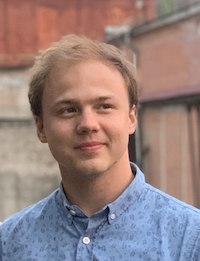Doctoral Project
Die „Wilden Neunziger“ im Mythos.
Trauma, Nostalgie und politische Schreckgespenster im popkulturellen Diskurs über die erste postsowjetische Dekade.
The "Wild Nineties" in myth.
Trauma, nostalgia and political bogeymen in the pop-cultural discourse on the first post-Soviet decade.
The "wild nineties" have an important function in Russian public discourse. Crime, violence, decay, anarchy and economic hardship are the attributes with which this period is often associated. Nevertheless, there are narratives that draw an alternative picture of the nineties as an era of youth, freedom, cultural prosperity and democracy. This dissertation project explores the construction of the nineties in Russian public discourse from 1999-2022, focusing on pop cultural sources: Feature films, TV series and novels. A central argument is that a remarkable discursive narrowing has taken place: In the 1990s itself, post-Soviet Russian society was overwhelmed by Discursive Plurality. In the early artistic works about the era, various social themes were negotiated on the basis of this overload of meaning. Various symbols were used to weave the myth of the wild nineties. Since then, this myth has dominated the discourse on the nineties and led to the marginalization of alternative narratives about the first post-Soviet decade.
Furthermore, the 1990s can be understood as a prism through which various aspects of public discourse in post-Soviet Russia are viewed. The emphasis on the, partly implicit, presence of the Soviet in the pop-cultural discourse on the nineties is a main focus of the dissertation project. Soviet nostalgia can be analyzed based on the depiction of processes of deconstruction of Soviet values, aesthetic references to the vanished Soviet Union and narratives about the Soviet childhood and youth of the characters in the sources. At the same time, the depiction of youth culture, freedoms and transgressions might create a negative image of the Soviet legacy.
The second focus of the project deals with the question of the extent to which the construction of the collective trauma of the 1990s was and is a political project. The fear of a return to the "chaos of the wild nineties" constitutes a significant political potential for the current regime of the Russian Federation, which is actively exploiting it for propaganda purposes. However, it is questionable whether a top-down approach, which views collective trauma as the result of identity politics, is expedient. The project seeks to place the discursive development in a broader context and thus complement existing political science research.
The methods of linguist and semiologist Roland Barthes complement the concepts of historiographical memory research in the project. The precise analysis of pop culture in Barthes' early writings, the way in which he identifies meta-meanings and relates them to each other and to ideology and reconstitutes networks of meaning, serves as inspiration for the examination of the source material on which the study is based.
Curriculum Vitae
- Born 1995 in Munich.
- 2014-2018: B.A. History and Philosophy at LMU Munich.
- 2018-2022: M.A. Eastern European Studies at LMU Munich.
- Since 2023: Phd student at LMU Munich, supervisor Prof. Martin Schulze Wessel.
Scholarships
- 2019-2021: Max Weber Foundation Scholarship.
- 2022: Graduate School Interim scholarship.
- Since February 2022: Gerda Henkel Foundation Doctoral scholarship.
Positions
- Since 2020 board member and secretary of the alumni association "AmurOst" of the Eastern European Studies Program at LMU Munich.


